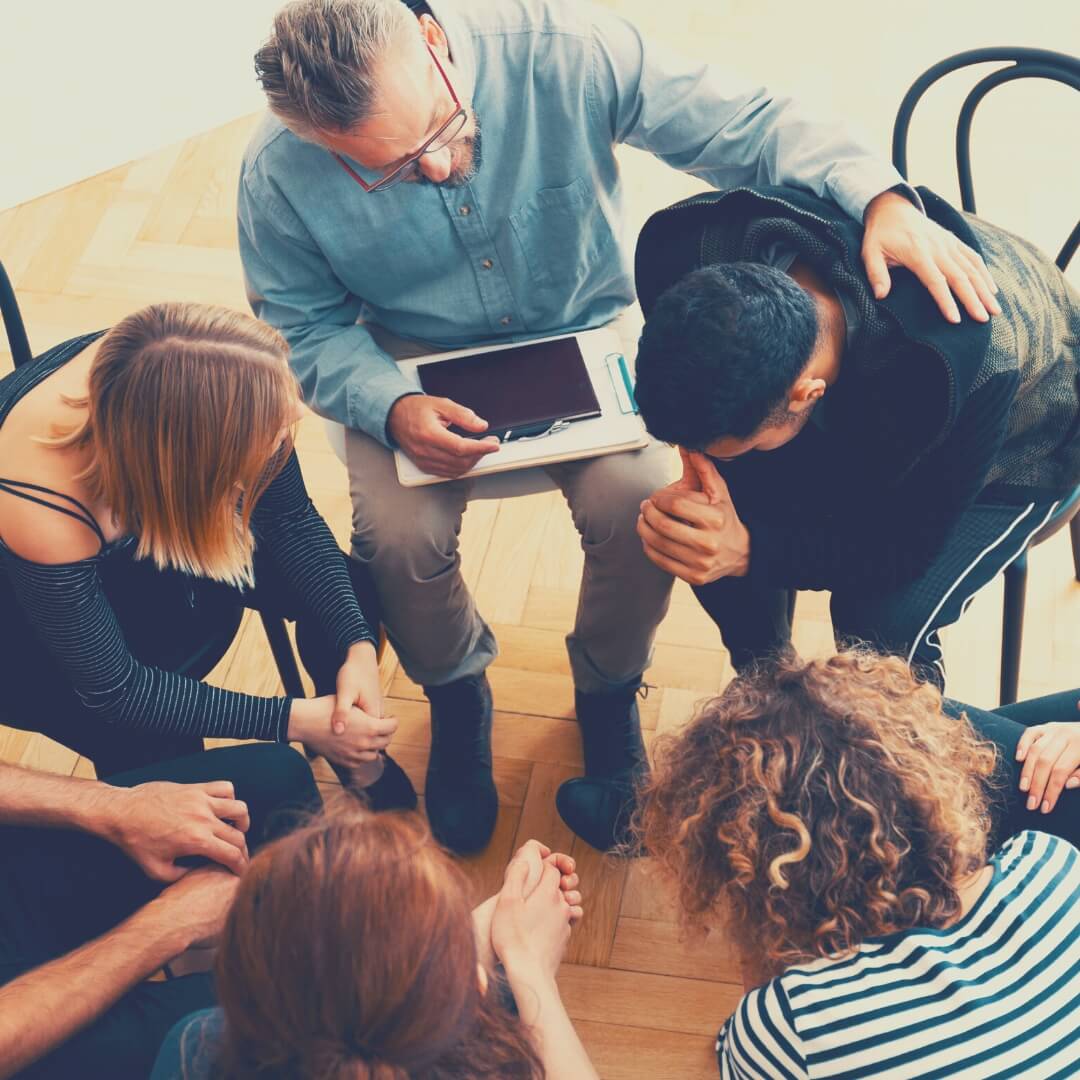Today, we’re going to chat about self-confidence. Self-confident people behave in social settings in ways that attract others.
They've mastered the skill of using failures and accomplishments as tools to build their self-confidence. Don’t we all want that?
Sure we do! We all want to feel more self-confident because research shows that self-confident people are more successful and experience healthier relationships. Still, there are times when our biggest obstacles are our own fears and negative thought patterns.
So how do we correct this? This post will highlight 15 habits you can embrace to increase self-confidence.
What is Self-Confident Person?
A self-confident person believes in themselves. Their positive attitude influences their behavior. The American Psychological Association defines self-confidence as “an individual’s trust in his or her abilities, capacities, and judgments, or belief that he or she can successfully face daily challenges and demands.”
If you're confident, you generally have a realistic concept of what you're capable of. This involves setting goals and rewarding yourself when you accomplish something you set out to do.
Let's be clear. This does not mean that self-confident people never fail. Failure and learning from mistakes teach us to be more confident.
In his book Too Much of a Good Thing, Harvard Psychiatrist Dr. Dan Kindlon says modern society has placed too much emphasis on preventing kids from experiencing pain and disappointment. In his practice, Dr. Kindlon often encounters children who are unhappy because they don't feel equipped to deal with challenges.
He blames their parents for protecting them from many struggles previous generations considered common childhood experiences.
Humans are complex creatures who want to feel confident, but long to avoid pain. Individuals who've overcome obstacles and succeeded are celebrated, yet are often criticized by peers who are quick to pass judgment because they feel insecure.
But here's the good news: it's possible to increase self-confidence because we're not all born with a fixed amount of it. If we're willing to shift our mindset, we can develop better habits to live a more successful life.
Self-confident people are perceived as more credible and often make a strong first impression. They can adapt to intense pressure and handle personal and professional challenges.
Generally, our culture is attracted to self-confident people because a self-confident person helps us relax.
Now that we've defined self-confidence and the key reasons why we need it to become successful humans, let's look at specific habits self-confident people embrace.
15 Habits of Confident People
1. Active Listening
Being an active listener strengthens relationships because people like to spend time with someone who listens well. Positive social interactions lead to healthier relationships, which boosts our self-confidence.
People who understand the value of active listening are interested in learning something new. They see conversations as an opportunity to grow rather than prove something about themselves.
Here are three ways you can take action and be an active listener:
2. Internal Motivation
Self-confident people do not need validation or approval from others. They're satisfied with what they've accomplished, but they also know their strengths and weaknesses.

Because they are usually interested in self-improvement, confident people set specific goals, and stay focused on creating an action plan to achieve those goals promptly. Check out this post to learn more about setting goals.
3. Avoid Judging Others
Self-confident people understand the value of learning from past experiences and looking for more opportunities to improve, so they don't waste time judging or criticizing others to make themselves feel better.
And because they've adopted this mindset, confident people are freely able to offer genuine praise and celebrate others' accomplishments.
They are not limited by a scarcity mindset. Instead, they recognize that in a world with eight billion humans, there is plenty of room for everyone to contribute based on their talents and abilities.
So the next time you're intimidated by another person's success and tempted to criticize, take action by offering a compliment. Establishing a healthy habit of cheering for peers will help boost your self-confidence.
4. Communicate Effectively
When someone is self-confident, they speak and interact with others in ways that reflect their mindset. Confident people don't stumble over their words or answer questions with vague responses.
They know how to say no. Here are three basic tips for you to take action and make effective communication a daily habit to increase self-confidence:
5. Maintain Boundaries
Identifying and maintaining boundaries is crucial if you're trying to increase self-confidence. Boundaries are guidelines that help define how you will interact with others. Knowing your boundaries frames how you'll spend your time, and how you'll engage with others, and allow you to show up more authentically.
Relationships are healthier and more satisfying when the humans involved have learned to establish and maintain boundaries. For an in-depth look at how to take action and evaluate your relationships, learn more about relationship core values for couples.
6. Spend Time with Positive People
James Clear, author of the bestselling book Atomic Habits writes, “One of the most effective things you can do to build better habits is to join a culture where your desired behavior is the normal behavior. New habits seem achievable when you see others doing them every day.”
Self-confident people spend time with other humans who inspire and help them stay motivated.
When self-confidence increases, emotional intelligence increases as well. This leads to more discernment about which environments and groups of people to avoid.
Negativity squelches creativity and minimizes aspirations. If you want to increase self-confidence, create an action plan to spend time with positive people who will cheer you on and motivate you to develop good habits.
7. Accept Responsibility
Self-confident people accept responsibility for their actions. They can admit when they've made a mistake. They don't waste time blaming other people for errors and oversights. Every situation that doesn't go as planned is considered an opportunity for growth.
Failure is painful, but improving ourselves means learning to admit that mistakes are all part of the growth process. Develop an action plan and be mentally prepared to accept responsibility the next time you make a mistake.
8. Value Self-Care
Self-confident people take care of themselves. This means making healthy choices and having the courage to side-step situations that aren't healthy.
Part of establishing and developing good habits means caring for your social, physical, and emotional health.
Self-confident people have done the hard work to identify what they need and aren't afraid to speak up and name those things. If you want to increase self-confidence, it's time to take action.
Learn to manage stress properly. Find hobbies that help you relax and feel rested, restored, and prepared to tackle your next objective with a positive outlook.
9. Seek and Celebrate Small Wins
Self-confident people know the value of celebrating small wins. Research shows that humans are motivated to keep going when they know they've made progress. There's a chemical reaction that takes place which fuels motivation to keep moving forward, which increases self-confidence.

The opposite is also true. If humans don't track their progress, their perception of reality shifts and they're more inclined to give up. Here are three ways you can take action to track your progress and celebrate small wins.
10. Ask for Help
Self-confident people are not afraid to ask for help. Their healthy self-esteem gives them a realistic sense of their strengths and abilities. They recognize that there are gaps in their knowledge. They can also admit that they don't have the experience necessary to achieve a particular goal.
Since self-confident people are always looking to learn and grow, they embrace the opportunity to reach out to a mentor or an expert. They aren't limited by a false belief that asking for help will make them seem weak.
If you need to ask for help or connect with a mentor, here are two ways you can take action today:
11. Risk-Takers
Self-confident people do not allow fear to sideline them. They approach new opportunities with a growth mindset. Confident people understand that if they don't try, they'll just keep playing small.
Or worse, they’ll risk missing out on a potentially incredible experience. They know that failure is a valuable way to learn important lessons.
Taking a risk does not mean behaving in a way that is foolish or dangerous. In this context, taking a risk simply means making a calculated, informed choice that will move you in the direction you desire to go.
One simple action plan you can use to develop self-confidence is to get a journal and write down where you see yourself in one year. Then make a list of risks you'll need to take to get there.
12. Do Not Hog the Spotlight
Self-confident people do not crave approval. They'd rather call attention to the people who helped them work hard to achieve their goals.
Because self-confident people value authenticity and hard work, they've learned that bringing a positive attitude to any environment is usually contagious. They don't enter personal and professional situations desperately seeking attention.
Since people who are self-confident draw motivation from within, they don't need constant affirmation and praise.
Increasing self-confidence requires being a team player. A good habit you can develop today and quickly take action is bringing a positive attitude to every situation. Choose to celebrate other peoples' efforts. Assume they did their best, and then praise their hard work.
13. Avoid the Comparison Trap
If you want to increase self-confidence, you'll have to stop comparing yourself to others. It's a common trap. The more people compare themselves, the more jealous they feel. This limits focus and diverts attention away from experiences and achievements.
Self-confident people avoid the unproductive cycle of making comparisons. They've learned that they need to stay in their lane.
Some amount of healthy competition can produce motivation, but feeling jealous about what others have achieved often derails our forward progress.
One of the easiest ways to take action and avoid the comparison trap is to keep a gratitude journal. When you focus on all that you have to be grateful for, you'll be less inclined to feel envious of others.
14. Choose Positive Self-Talk
Another hallmark of a self-confident person is the way they choose to speak to themselves. Limiting negative self-talk plays a key role in increasing self-confidence.
Because if we're constantly worried that we're not good enough, that drains the energy we need to achieve the things we're meant to do.
Many people get caught in a cycle of believing things about themselves that aren't rooted in reality. Irrational thought patterns, fears, and self-criticism can all become obstacles to achieving the goals we've set for ourselves.

Self-confident people challenge these negative thought patterns. They force themselves to hunt for the truth buried under all the negativity.
For more tips on how you can create an action plan to change the way, you speak to yourself check out this list negative self-talk worksheets.
15. Challenge their Limitations
Self-confident people are willing to step outside their comfort zone. Here at DGH, we've talked about the benefits of developing a growth mindset numerous times. If you want to increase self-confidence, you'll have to move beyond your old patterns and habits that limit your progress.
Embracing challenges helps your confidence blossom. Self-confident people know that expanding their professional network might lead to an incredible new job opportunity.
Crossing the street and saying hello to the new neighbors that just moved in might lead to a fulfilling life-long friendship. Going to a group exercise class instead of always working out alone will improve your social, physical, and emotional health.
As you strive to develop habits that increase self-confidence, look for intentional ways you can take action and challenge your limitations every day.
Final Thoughts on Becoming a Confident Person
A positive attitude is the foundation for self-confidence. The way you think determines your life’s trajectory. When you choose to focus on self-improvement, you open the doors to endless possibilities… in both personal and professional relationships.
Still, you must remember that building self-confidence is a lifelong process, not an overnight success story. You can start focusing on these 15 habits to increase your self-confidence, but be patient so you don’t become frustrated.
Finally, if you want more actionable tips to get those small wins that will continue to fuel your confidence, be sure to check out these self-confidence building exercises.


